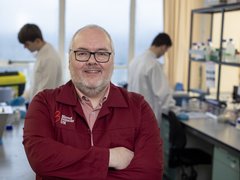Our research projects
Find out more about the research projects you're currently helping us to fund around the country.
120 results found.
EuroNet-PHL-C2 trial - Dr Stephen Daw
Discover more about Dr Stephen Daw's EuroNet-PHL-C2 trial looking to reduce the need for radiotherapy treatments in children and young people with Hodgkin lymphoma by tailoring chemotherapy.
TIDaL trial - Dr Tobias Menne
Find out more about Dr Tobias Menne's TIDaL trial, that looks into how well rituximab and ibrutinib work together in treating people with post-transplant lymphoproliferative disorders (PTLD).
Understanding how CML turns into an aggressive disease
Discover Dr Gillian Horne's research into why chronic myeloid leukaemia (CML) can develop into an aggressive form of blood cancer.
Understanding the causes of post-transplant lymphoproliferative disease
Read about Dr Heather Long's study into how post-transplant lymphoproliferative disease (PTLD) can become resistant to treatment, and what new treatments could work on the blood cancer.
Improving outcomes for people with MDS - Dr Stephen Jenkins
Explore Dr Stephen Jenkins's research into two new treatments in people with MDS to see if they can improve symptoms and overall quality of life.
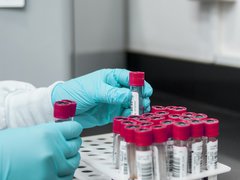
Understanding how a virus can cause lymphoma - Professor Michelle West
Read Professor Michelle West's study into whether Epstein-Barr virus is responsible for the development of many types of lymphoma.
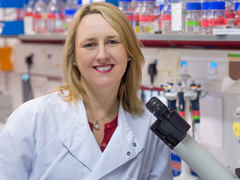
Understanding how leukaemia develops in children with Down’s syndrome
Find out more about the Professor Paresh Vyas study on how a genetic change some children with Down’s syndrome are born with, can cause leukaemia.

Understanding changes in AML stem cells - Professor Constanze Bonifer
Find out more about Professor Constanze Bonifer's research into alterations in genes of Acute myeloid leukaemia (AML) cells, to find new ways to treat the blood cancer.
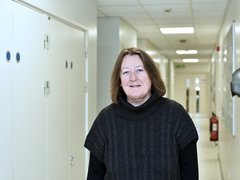
Improving outcomes for people with MDS/MPN Overlap Syndromes - Dr Daniel Wiseman
Discover Dr Daniel Wiseman's research into a new drug called ASTX727, to see if it can extend and improve the lives of people with MDS/MPN Overlap Syndromes.

Finding new ways to treat aggressive chronic myeloid leukaemia - Professor David Vetrie
Discover how Professor David Vetrie is researching new treatments for aggressive chronic myeloid leukaemia.
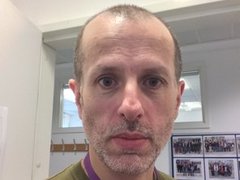
Improving treatment for people with lymphoma - Dr Okosun
In this project Dr Okosun wants to understand how changes in the coating of our DNA can lead to lymphomas to find ways to target treatments towards this.

Reducing the risk of developing blood cancer in children with Schwachman-Diamond syndrome
Find out more about Professor Alan Warren's research to find new treatments for people with Schwachman-Diamond syndrome.

Understanding whether we can prevent acute myeloid leukaemia- Professor George Vassiliou
Find out more about Professor George Vassiliou's study into preventing people from developing acute myeloid leukaemia (AML), by seeing if DNMT3A is responsible for cells becoming ‘pre-leukaemic'.
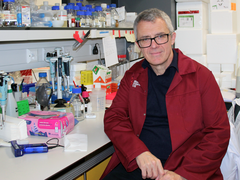
Reducing the need for chemotherapy in people with acute myeloid leukaemia - Dr Richard Dillon
Read more about Dr Richard Dillon's research to see if people with AML (acute myeloid leukaemia) respond to a drug called venetoclax, by looking for markers in their DNA.
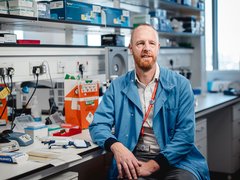
Using the immune system to improve treatment for people with myeloma - Dr Sarah Dimeloe
Find out more about Dr Sarah Dimeloe's research into using our immune system to destroy cancerous Myeloma cells.
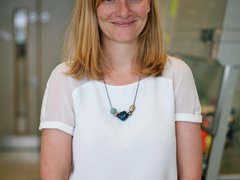
Understanding how MALT lymphoma develops - Professor Ming-Qing Du
In this project, Professor Du will try and work out how MALT lymphoma develops to try and find new ways to treat it.

Ensuring people with ALL get the most appropriate level of treatment - Professor Anthony Moorman
In this project, Professor Moorman is trying to find markers that can tell clinicians how much treatment someone with ALL needs.

Finding new ways to treat MPN - Dr Michele Mishto
In this project, Dr Mishto wants to understand whether we might be able to harness our immune system to treat MPN.

Understanding how chemotherapy impacts quality of life in people with MDS - Dr Pramila Krishnamurthy
This project will help us understand more about how quality of life changes throughout treatment which will allow clinicians to better support people with MDS in the future.

Finding new ways to treat AML - Professor Alex Tonks
Professor Tonks is studying what drives AML to try and find new treatment targets for people the disease.
